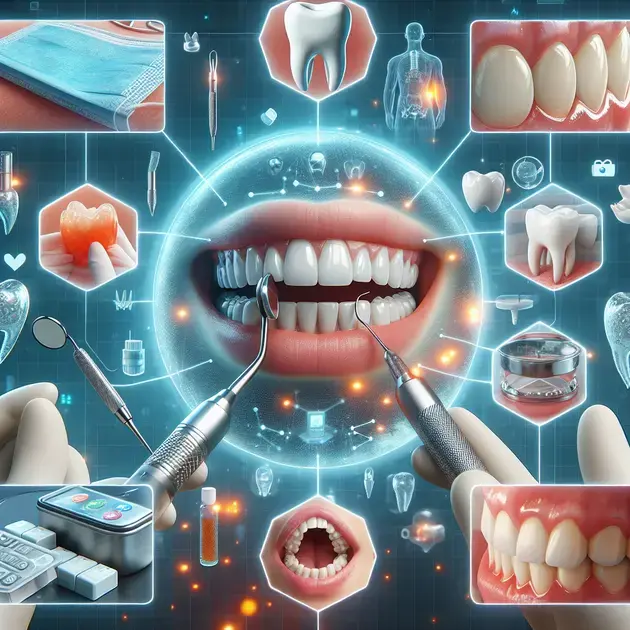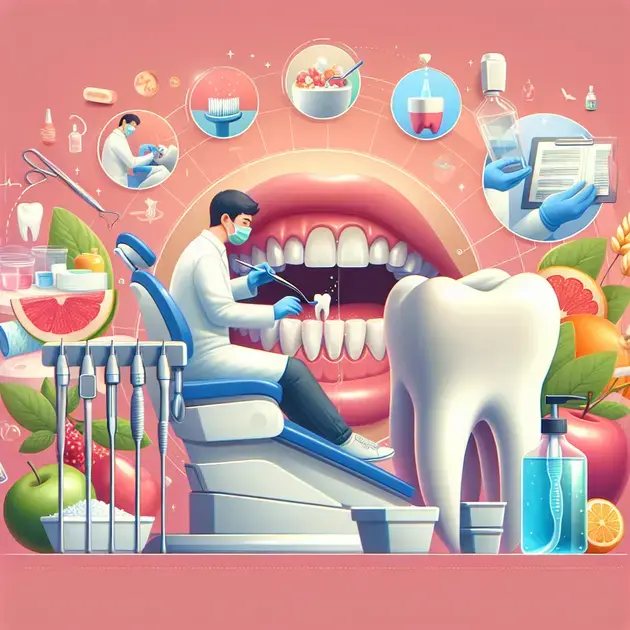Are you looking for a comprehensive guide to general dentistry? Look no further! In this post, we will cover everything you need to know about general dentistry, including the most common procedures, benefits, and what to expect during your visit to the dentist.
From routine cleanings and check-ups to more complex treatments like root canals and dental implants, general dentistry encompasses a wide range of services aimed at keeping your smile healthy and bright. Stay tuned for valuable insights and tips to help you maintain optimal oral health.
The Importance of Regular Dental Check-ups
Regular dental check-ups are essential for maintaining good oral health and preventing serious dental issues down the line. These routine visits to the dentist can help detect problems early on, such as cavities, gum disease, and oral cancer. Most dentists recommend visiting them at least twice a year for a thorough examination and cleaning.
To schedule a dental check-up, you can use online platforms like Zocdoc or MyChart, where you can search for dentists in your area, read reviews from other patients, and book appointments directly. These platforms also allow you to set up reminders for your upcoming visits, ensuring you never miss an appointment.
During a dental check-up, your dentist will typically perform a comprehensive oral exam, looking for any signs of decay, infection, or other issues. They may also take X-rays to get a closer look at your teeth and jawbone. Additionally, a dental hygienist will clean your teeth, removing plaque and tartar buildup to prevent cavities and gum disease.
By staying proactive about your dental health and attending regular check-ups, you can save money in the long run by addressing any minor concerns before they escalate into more serious conditions. Remember, prevention is key when it comes to maintaining a healthy smile!
Common Procedures in General Dentistry
General dentistry encompasses a wide range of procedures aimed at keeping your teeth and gums healthy. Some of the most common procedures you may encounter during a dental visit include regular cleanings, fillings, root canals, and extractions. These treatments are necessary for addressing issues like cavities, infections, and damage to the teeth.
If you need to undergo a common dental procedure, websites like Healthgrades or WebMD can provide valuable information on what to expect before, during, and after the treatment. These platforms offer detailed guides on each procedure, including potential risks, recovery time, and post-care tips.
Before undergoing any procedure in general dentistry, your dentist will thoroughly explain the process to you and address any concerns or questions you may have. They will also discuss the potential outcomes of the treatment and provide instructions on how to care for your teeth post-procedure to ensure optimal healing.
Whether you require a simple filling or a more complex root canal, knowing what to expect during common dental procedures can help alleviate anxiety and ensure a successful outcome. Trusting your dentist and following their guidance is crucial for maintaining good oral health.
Tips for Maintaining Optimal Oral Health
In addition to regular dental check-ups and common procedures, there are several steps you can take to maintain optimal oral health on a daily basis. Brushing your teeth at least twice a day with fluoride toothpaste, flossing daily, and using mouthwash can help prevent cavities and gum disease.
To enhance your oral hygiene routine, consider using dental apps like Oral-B or Colgate Connect, which provide personalized tips and reminders to help you stay on track with your brushing and flossing habits. These apps can also track your progress and alert you to any areas that may need extra attention.
Along with proper oral hygiene practices, maintaining a healthy diet rich in fruits, vegetables, and lean proteins can support your overall oral health. Avoiding sugary and acidic foods and beverages can help prevent tooth decay and enamel erosion, keeping your smile bright and healthy.
Lastly, don’t forget to stay hydrated throughout the day by drinking plenty of water. Water helps wash away food particles and bacteria that can lead to plaque buildup and bad breath. By following these tips and staying consistent with your oral care routine, you can enjoy a lifetime of healthy smiles.
**Preventing Dental Issues Through Proper Care**
Proper Oral Hygiene Practices
Preventing dental issues begins with establishing and maintaining proper oral hygiene practices. This includes brushing your teeth at least twice a day with fluoride toothpaste, flossing daily to remove plaque and food particles between teeth, and using an antimicrobial mouthwash to reduce bacteria in the mouth. Regular visits to the dentist for professional cleanings and check-ups are also essential in preventing dental problems.
How to Implement Proper Oral Hygiene Practices:
- Brush teeth for two minutes, covering all surfaces.
- Floss each tooth to remove debris and plaque between teeth.
- Use mouthwash to kill bacteria and freshen breath.
- Schedule regular dental appointments for cleanings and check-ups.
Importance of a Healthy Diet
In addition to good oral hygiene practices, maintaining a healthy diet is crucial in preventing dental issues. Eating a balanced diet that is rich in vitamins, minerals, and nutrients can strengthen teeth and gums, while avoiding sugary and acidic foods and beverages can help prevent tooth decay and gum disease. Drinking plenty of water is also important in maintaining good oral health.
How to Follow a Healthy Diet for Dental Health:
- Include fruits and vegetables for essential vitamins and minerals.
- Eat dairy products for calcium to strengthen teeth.
- Avoid excessive consumption of sugary and acidic foods and drinks.
- Drink water throughout the day to rinse away food particles and bacteria.
Regular Dental Check-ups and Cleanings
Another key aspect of preventing dental issues is scheduling and attending regular dental check-ups and cleanings. Dentists can detect early signs of dental problems, such as cavities, gum disease, and oral cancer, and provide appropriate treatment to prevent these issues from escalating. Professional cleanings also help remove plaque and tartar buildup that regular brushing and flossing may miss.
How to Ensure Regular Dental Check-ups and Cleanings:
- Make dental appointments every six months for preventive care.
- Follow your dentist’s recommendations for treatment and follow-up care.
- Stay proactive in addressing any dental concerns or symptoms.
- Maintain good communication with your dentist about your oral health.
Conclusion
In conclusion, maintaining proper oral hygiene practices, following a healthy diet, and attending regular dental check-ups and cleanings are essential steps in preventing dental issues. By brushing teeth thoroughly, flossing daily, and using mouthwash, individuals can reduce the risk of developing cavities and gum disease. Incorporating a balanced diet rich in vitamins and minerals while limiting sugary and acidic foods promotes stronger teeth and gums. Additionally, staying hydrated by drinking water helps maintain good oral health by rinsing away harmful bacteria.
Regular visits to the dentist every six months allow for early detection of dental problems, such as cavities and gum disease, ensuring timely treatment and prevention of more serious issues. Professional cleanings performed by dental professionals help eliminate plaque and tartar buildup that regular oral care may miss. By following professional recommendations and being proactive in addressing dental concerns, individuals can maintain optimal oral health and prevent potential complications.
Overall, the combination of proper oral hygiene practices, a healthy diet, and regular dental check-ups forms a comprehensive approach to preventing dental issues and promoting long-term oral health. By prioritizing these fundamental aspects of dental care, individuals can enjoy a healthy smile and prevent common dental problems, ultimately contributing to their overall well-being and quality of life.

